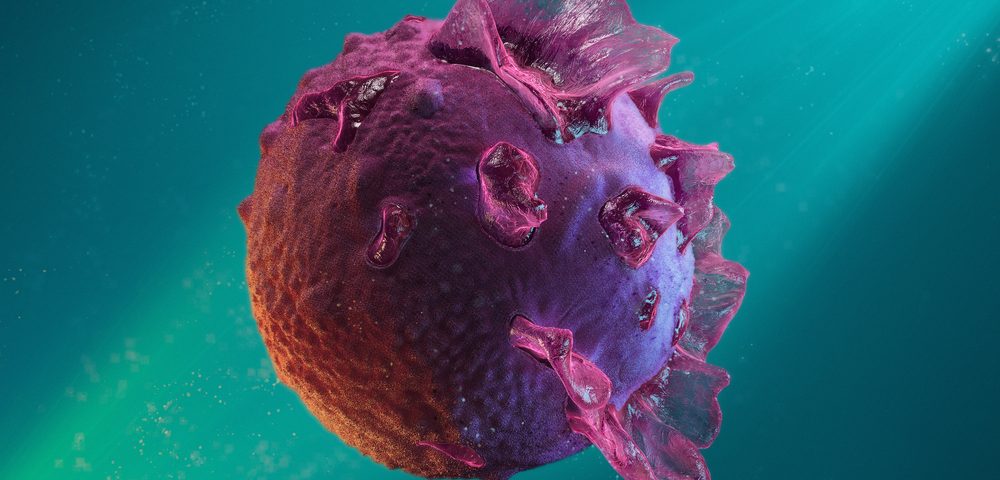Infection with one of the most common viruses in humans, the Epstein-Barr virus (EBV), may predispose women to develop breast cancer, according to Harvard Medical School researchers.
Their study, “Epstein–Barr Virus Infection of Mammary Epithelial Cells Promotes Malignant Transformation,” published in EBioMedicine, may have important implications in the prevention of breast cancer.
EVB, usually known as the cause of mononucleosis, is one of the eight known herpes viruses that can infect humans. Although most individuals do not exhibit any symptoms from the infection, more than 90 percent of the world’s population is estimated to carry EBV.
EVB infection has been linked to a number of cancers, including Hodgkin’s disease, African Burkitt lymphoma, nasopharingeal carcinoma, gastric adenocarcinoma, and leiomyosarcoma. Several studies have also reported an association between EBV infection and breast cancer development, but EBV’s role in breast cancer development and/or progression was not known.
Researchers addressed this question by culturing breast cells called primary epithelial cells (MECs) in the presence of EBV. They found that EBV can infect MECs by binding to the CD21 receptor that is expressed at the surface of normal breast cells, but not in breast cancer cells. After infecting the cell, the virus induces a series of changes that render stem-like properties to the cells, which allows them to keep dividing.
When the EBV-infected MECs were implanted in mice, EVB infection induced the activation of signaling pathways involved in tumor formation, accelerating the development of tumors. Importantly, when the researchers examined the gene expression pattern of EBV-infected cells, they found they had genetic characteristics of high-grade estrogen-receptor-negative breast cancer, which is an aggressive form of the disease.
The researchers also confirmed that EBV infection plays a role in breast cancer initiation, but not in its progression, as malignant EBV-derived MECs loss the expression of CD21. This suggests that EBV infects normal breast cells, where it participates in the initiation of the tumorigenic process.
“We think that if a young woman develops EBV during her teenage years or later, her breast epithelial cells will be exposed to the virus and can be infected. While for most individuals, there will be no long-term consequences, in some the infection may leave genetic scars and change the metabolism of these cells,” Gerburg Wulf, MD, PhD, a physician scientist in the Hematology/Oncology Division at Beth Israel Deaconess Medical Center (BIDMC), and an associate professor of medicine at Harvard Medical School, said in a press release. “While these are subtle changes, they may, decades later, facilitate breast cancer formation.”
The findings support a recent joint call from the National Cancer Institute and the National Institute of Allergy and Infectious Diseases, proposing the development of an EBV vaccine. Impairing EBV infection with a vaccine may not only prevent the development of EBV-derived breast cancer, but also of other diseases associated with EBV infection.

